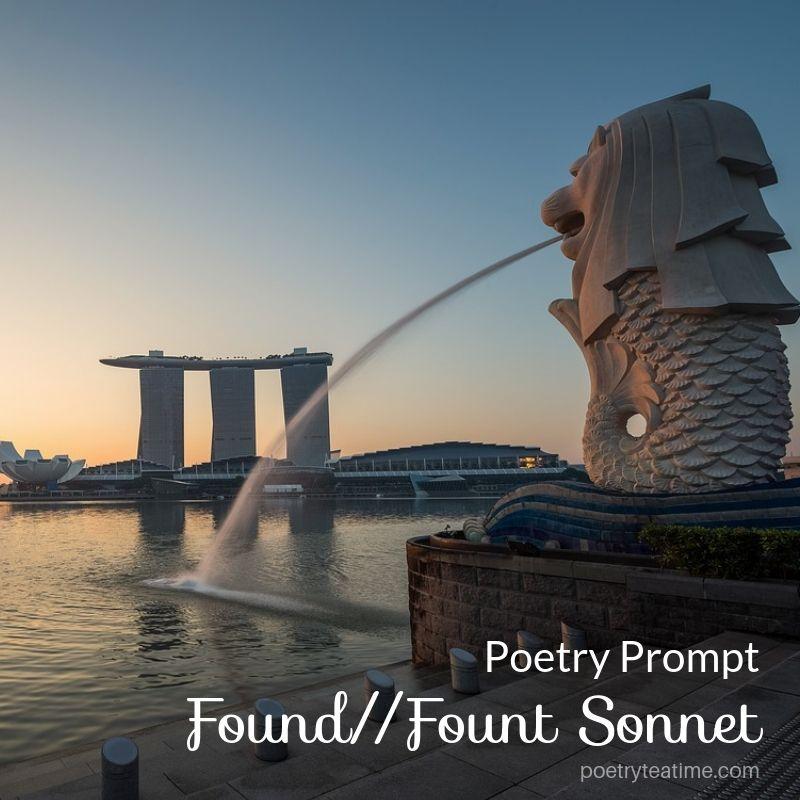Today's poetry prompt pushes the boundaries of "rules" for poetry. It's a mix of the traditional sonnet and the brand new innovation of found poetry. It's a type of poem developed in Singapore in 2017! So let's dig in to the found//fount sonnet.
Sonnets are one of the most elaborately structured poetic forms. While the rhymes and rhythms vary, there is one guiding rule: sonnets are all 14 lines.
Historically, sonnets developed differently across Europe because of certain writers. In Italian, Petrarch wrote sonnets in the 1300s in praise of his love (check out our highlight of Petrarch here). In English, Edmund Spenser and William Shakespeare each developed a distinctive sonnet form with different rhyme patters and styles (find out more here).
Sonnets were important to the development of poetry because they were one of the first poetic forms meant to be read silently, not performed. Their tightly-contained form and set of rules are a feast for the eye, not the ear.
However, as poets continued to experiment with styles of poetry in the twentieth century, a "sonnet" became a much looser term. Any poem with 14 lines called upon the history and spirit of the sonnet tradition, while allowing much more flexibility with rhyme and rhythm.
Today's sonnet forms is one of those new, experimental types of sonnets.
The found//fount sonnet developed in a writer's workshop in Singapore in 2017, invented by Desmond Kon Zhicheng-Mingdé.
Here's how you write one:
- Choose a piece of writing (an article, newspaper, novel, anything!) and circle every seventh word until you have 14 words total.
- Each line of your fourteen-line sonnet needs to include one of the words you circled, in the order you circled them.
- Typically, these sonnets don’t use a set rhyme or rhythm.
Found//fount sonnets share echoes of traditional sonnets in their 14 lines and in the strict pattern of found words.
But they're also something completely different, in the tradition of found poetry and seeing the beauty in words everywhere.
Are you ready to write your own found//fount sonnet? Try it out and share it with us here!
If you would like to find out more about the found//fount sonnet, you can learn more in this detailed history from Southeast Asian Poetic Forms. Also, learn about other Asian and Pacific types of poetry in our article here!



